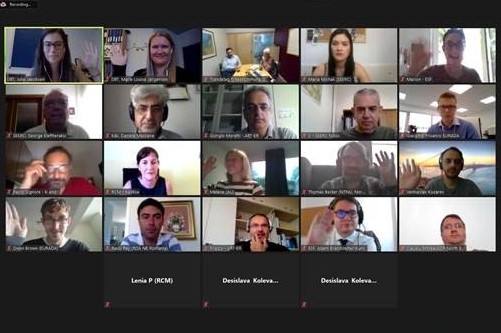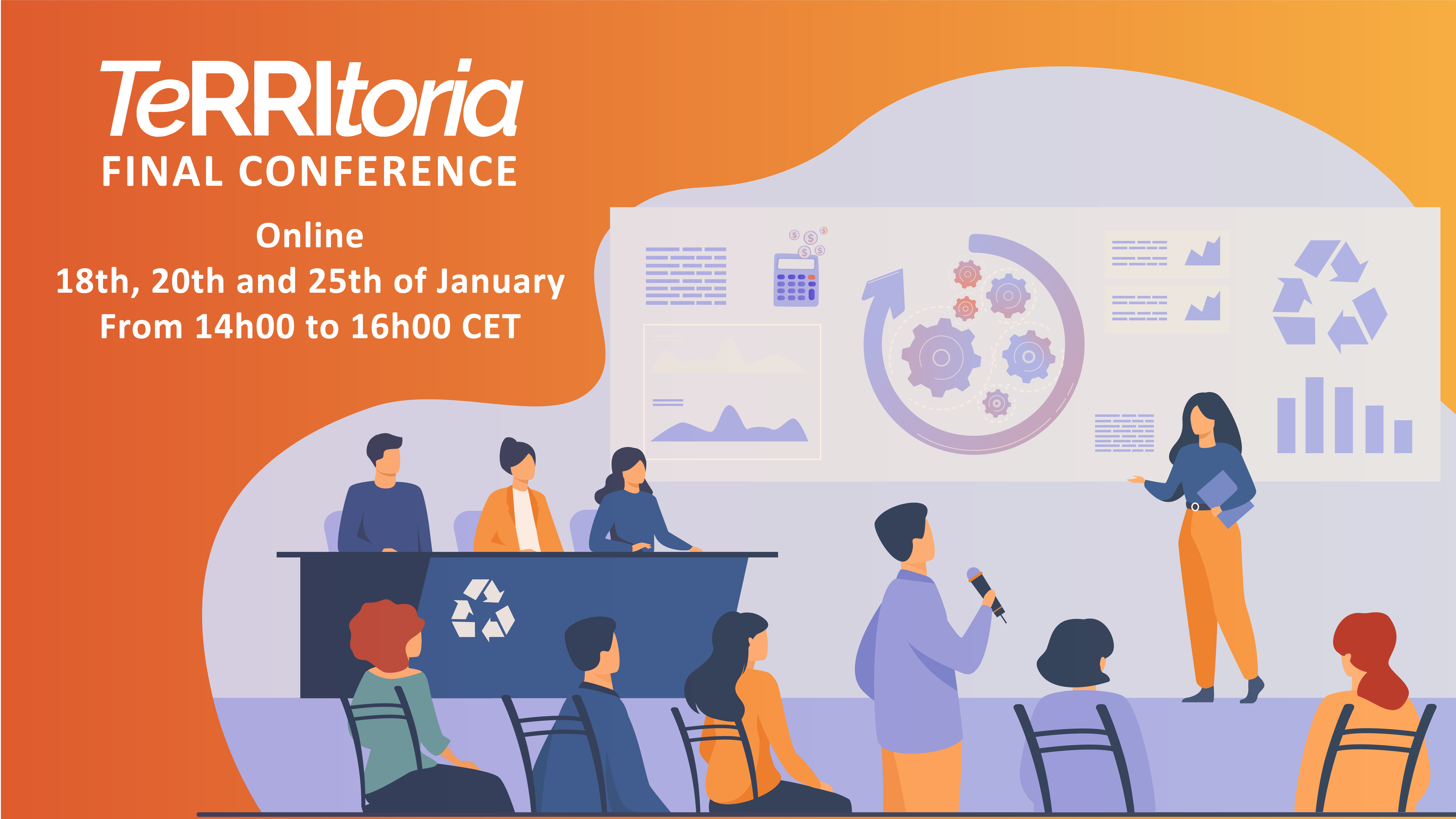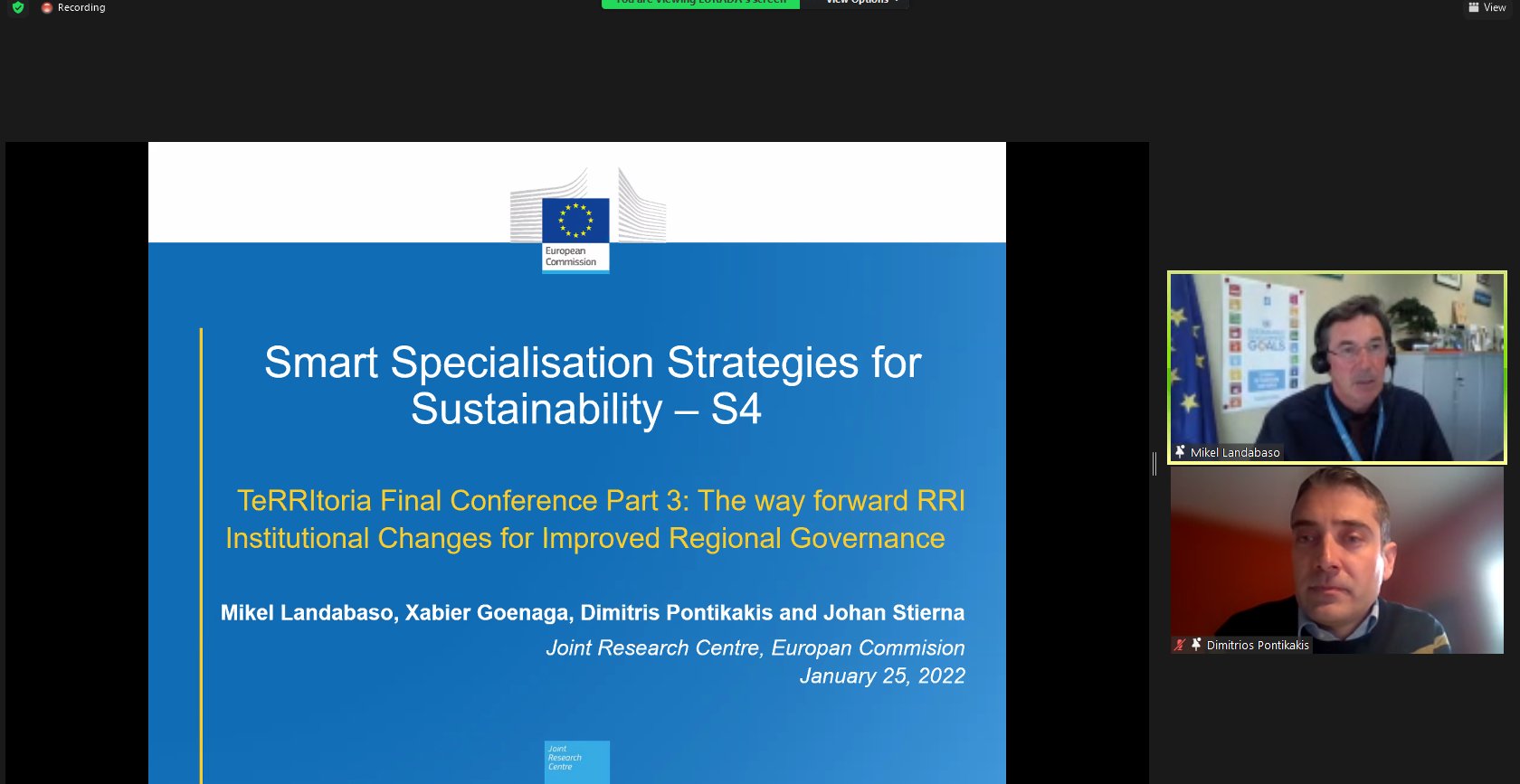First mutual learning event
This month TeRRItoria held its first out of 3 planned Mutual Learning Meetings. The idea of such internal meetings is outlined in Work Package 7 of TeRRItoria – Mutual Learning and Policy Advice – as an opportunity to present and analyse best practices and case studies. As it turned out, the September meeting was an fascinating chance for the project partners to come together, as both a large group and in smaller working groups, in order to share experiences from their soon-to-be-concluded co-creation activities. The meeting was held online and was structured into 3 distinct sections: presentations from project partners, question-based discussions in breakout groups, and a grand gathering of heads to conclude.
In the first section we heard, for example, how the Region of Central Macedonia have successfully set up a Gender Equality Committee within their organisational structure and how Trøndelag County Council and NTNU have significantly altered the design of their Transformative Experiment based on feedback from an important stakeholder during co-creation. Interesting examples like this will be discussed in more detail in our upcoming newsletter, which can be signed up for by following this link.
In the next part of the meeting, the participants were divided into 3 pre-prepared groups. There, in a structured way and with help of an online tool, they discussed the following questions:
Q1a – What kind of challenges have the helixes faced during co-design?
Q1b – What kind of challenges did you face in activating and/or collaborating with the helixes?
Q1c – What kind of solutions/strategies have been/are planned to be used by the different helixes?
Q2a – What are the key challenges when implementing in WP5?
Q2b – How will you ensure anchoring in your organisation?
Interesting discussions in this part often revolved around the different approaches and relationships between certain constituents of the Quadruple Helix; for example a lack of understanding between academia and civil society, or how partners try to bring academics to civil society, rather than taking the social actors to university. More information about the details of the discussions will soon be available on the TeRRItoria blog, a channel where the various project partners contribute with insight into lessons learned during the project.
Finally, the breakout groups came back together in the main videocall to share what was discussed in the breakout rooms and to discuss the most important points that came up. Food for thought included:
- The importance of mapping and keeping maps updated
- Issues surrounding language; what terms are used vs. what is understood
- The importance of making stakeholders feel what they are doing is in their interest; that they hold a stake, so to say
- The importance of identifying points of common interest, even where the interests of the helixes diverge
- The potential value of meeting helixes separately at first and then considering their interests before bringing them together
- The importance of taking note of any conflicts that arise to keep them in mind for future
- How RRI practitioners should keep outcomes of institutional change in mind
- The relevance to “territorialisation” of translating RRI principles into everyday language for those who are not RRI specialists
- The importance of keeping a focus on the whole regional ecosystem, not just the organisations dealt with
The next virtual Mututal Learning Meeting is foreseen to take place early in 2021 and we have great expectations for it. By that time, the 5 Transformative Experiments will be up and running. A big thanks goes out to our colleagues at the Danish Board of Technology (DBT) for putting together this event which the TeRRItoria colleagues could take away so much from.





